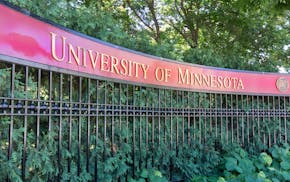Forest Lake officials were acting within the law when they decided to issue revenue bonds to build the new $21 million City Center project without going to voters for approval, the Minnesota Court of Appeals has ruled.
The ruling affirms a March decision by Washington County Judge John Hoffman in a lawsuit filed by the Lakes Area Business Association and residents Cameron and Cassandra Piper and William Anderson. The petitioners had challenged the funding arrangement to be used to finance the redevelopment of the former Northland Mall into a new City Hall/Public Safety Building, along with 22,500 square feet of commercial and retail space.
Construction is well under way, with the first of nearly 200 pre-cast concrete wall segments going up on the new government building. The project is expected to be completed by the end of the year.
The city began looking at sites for its new City Hall/Public Safety Building in 2007, and in late 2012 reached a deal with Pace Development Inc. to buy Northland Mall, a largely vacant strip of stores south of downtown.
The city's Economic Development Authority planned to demolish the mall and build the new government building, and sell three lots for private development. The group of opponents, however, presented a petition with 1,000 signatures asking that the question of issuing the bonds be put before voters.
The city did not act on the petition, and closed the deal. The suit was filed last February.
At issue was whether the project should be financed with capital improvement bonds, which require voter approval, or revenue bonds. Those filing the suit argued that the city was engaging in capital improvement, not economic development, as defined in state law, thereby requiring voter approval. Revenue bonds are allowed to be issued for economic development without a voter referendum.
The city, however, argued the Northland Mall site was blighted, and that the project fell under the legal definition of economic development. Other cities, including Cottage Grove, have built public buildings under the same financing arrangement.
The three-member panel of Appeals Court judges agreed with the city, saying the statutes are clear, and that the financing tool selected by the city did not violate the law.
Jim Anderson • 651-925-5039

Teen suspect in Nudieland mass shooting arrested on murder, assault charges
'Human error' behind Robbinsdale shelter-in-place alert that was mistakenly sent countywide

Going to Wolves or Twins tonight? How to get there (and maybe avoid traffic).
Focusing on bringing football film into frame

